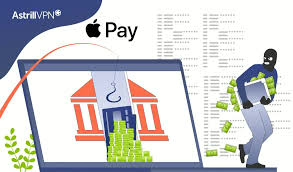In a world where deception lurks at every corner, scammers are continually refining their strategies to remain persuasive and relevant. One can never be sure when they might become the next target of these cunning individuals. It’s crucial to stay alert and recognize the warning signs, lest you find yourself ensnared in their web of deceit.
Recent years have witnessed an alarming rise in fraudulent activities. A report from Channel News Asia highlighted that crime rates in Singapore surged by nearly 24% in 2021 compared to 2020, with scams making up a significant portion of these incidents. Out of a staggering 46,196 reported crimes, over half were classified as scams.

The pandemic created a perfect storm for scammers, as the surge in online interactions provided them with new avenues to exploit. With people increasingly turning to the Internet for work, shopping, and socializing, fraudsters seized the opportunity to transition their schemes into the digital realm.
Once upon a time, identifying scams was a relatively straightforward task. However, as these criminals grow more sophisticated, recognizing their tactics has become increasingly challenging for the average person. To help arm you against this rising tide of deception, here’s an overview of six prevalent types of scams that you should be vigilant about to protect yourself from becoming their next victim.
Delving deeper into the statistics reveals a stark picture of the landscape of scams in 2021. Job scams led the charge with 4,554 reported cases, a significant increase from 4,422 the previous year. Non-banking phishing scams were also on the rise, with 2,783 incidents reported—up from 2,139. E-commerce scams saw a dip with 2,707 cases, a decrease of 652 from the year before.
Investment scams proved particularly insidious, climbing to 2,476 cases—an increase of 1,380. Loan scams rose modestly with 2,274 reports, while banking-related phishing incidents escalated to 2,237, marking a rise of 897 cases. Social media impersonation scams dropped significantly to 1,614—a decrease of 1,305—while internet love scams climbed to 1,099 cases with an uptick of 276. The impersonation of Chinese officials accounted for 752 incidents, showing a rise of 310 cases, and fake friend call scams held steady at 685.

As we navigate this complex world filled with both promise and peril, knowledge is our greatest ally. Staying informed about these scams and recognizing their signs can help shield us from falling prey to their traps. Consider this your call to action: educate yourself and remain vigilant against those who seek to deceive.
The Deceptive World of Job Scams
Job scams are among the most prevalent forms of trickery in the realm of deceit. According to statistics from scam alert.sg, by December 2021, 4,554 individuals had fallen victim to these fraudulent schemes, resulting in a collective loss of nearly S$91 million. Among these unfortunate souls, one individual suffered an astonishing loss of S$4.3 million—an eye-watering figure that highlights the severity of this issue.
Occasionally, I find myself inundated with messages from strangers bearing names like Amy and William, who claim to represent renowned tech companies such as TikTok or Facebook. They entice me with promises of earning S$300 daily for part-time work that boasts short, flexible hours and the comfort of working from home. It sounds appealing. But do I take the bait? Absolutely not.

The jobs they propose often involve tasks like cold calling, completing numerous online surveys, or even listing products on my own Carousell account. Should I decide to engage with them, they might initially send me small sums of money after completing a few tasks, creating a false sense of security. Once they have successfully reeled me in, they will then ask for a ‘small fee’ to unlock the potential for even greater earnings. This is the moment when victims’ greed takes over; they begin to rationalize the situation, convincing themselves that they are involved in a legitimate opportunity. Tragically, this leads many to transfer significant amounts of money, only to discover that their newfound employers have vanished without a trace.
What makes these scammers particularly cunning is their ability to mask their true identities. They rarely use their real names; their profile pictures are often stolen images, and their Telegram accounts lack any verifiable contact information. The only trace they leave behind is a phoney Telegram handle linked to an account that can be deleted at their convenience—a ghostly presence in the digital world.

Navigating this treacherous landscape requires vigilance and caution. While the allure of easy money is potent, it’s vital to remain sceptical and alert to the signs of deception lurking behind seemingly attractive job offers. In a world where opportunities often come cloaked in shadows, it pays to be discerning and wary of those who promise the moon but deliver nothing but heartache.
The Rise of Phishing Scams: A Cautionary Tale
In an era where digital interactions have become commonplace, a new breed of tricksters has emerged—those who engage in phishing scams. Their primary aim? To pilfer personal information from unsuspecting individuals. Whether it’s your NRIC number, PINs, bank account details, credit card information, or even one-time passwords (OTPs), these scammers are relentless in their pursuit.
Gone are the days when these con artists relied on outdated tactics, such as claiming you’ve won a lavish vacation or a hefty cash prize to draw you in. Let’s be honest; those schemes have lost their charm and rarely catch anyone off guard anymore. However, that doesn’t mean these scammers have given up. On the contrary, they’ve become increasingly innovative in their methods.

Imagine this: a phone rings, and on the other end is someone who sounds official—perhaps a government representative or a bank employee—seeking to extract your personal information under the guise of urgency. Or picture an email that lands in your inbox, seemingly from a trusted source, complete with logos and branding so meticulously crafted that it mirrors the genuine article.
A friend of mine recently found herself in such a predicament. She received an email, purportedly from Spotify, urging her to change her password immediately. At first glance, it seemed legitimate. However, upon closer inspection, she noticed something unsettling—the URL provided was not aligned with the actual Spotify domain. It was a stark reminder of how deceptive these scams can be.

With phishing scams becoming alarmingly prevalent, many institutions—including government agencies, banks, and corporations—have stepped up their efforts to educate the public. They have made it abundantly clear that they will never request sensitive information over the phone or through automated messages. The message is simple: always verify the legitimacy of any request for personal details.
In this digital age, safeguarding yourself is paramount. One effective measure is to enable two-factor authentication (2FA) on your accounts, providing an additional barrier against unauthorized access. So, as you navigate the online world, stay vigilant and remember that when in doubt, it’s always better to double-check before sharing your personal information with anyone.
The Perils of Investment Scams
In the digital age, where communication flows effortlessly through platforms like Telegram, many users find themselves unwittingly caught in a web of deceit. Picture this: you’re scrolling through your messages when suddenly, you’re added to an investment group chat populated by unfamiliar faces. Intrigued, you soon discover that these individuals are not merely enthusiasts sharing tips but rather dubious characters pushing enticing offers. They urge you to click on a link leading to an investment opportunity that promises astronomical returns with negligible risk—a siren song that’s hard to resist.
Yet, this is just one of the myriad tactics employed by scammers. You might also receive unsolicited messages from supposed representatives of stock brokerage firms, banks, or other financial institutions. These messages often carry an air of authority, as they request sensitive personal details such as your NRIC or passport number. They present themselves as facilitators, claiming these details are needed to complete an investment form. In addition, they might insist on transferring funds to cover “administrative and security fees” tied to their supposedly lucrative investment products. Some may even suggest that a deposit is necessary before you can access your promised profits.

However, once you make that transfer—no matter how small—the likelihood is that your money will vanish into thin air, leaving you with nothing but regret.
It’s vital to remember that all investments carry inherent risks. A product that boasts high returns with minimal risk is almost always too good to be true. To safeguard yourself, take the time to verify the authenticity of any sender who approaches you with investment opportunities. Never divulge personal information online, especially to strangers. For those determined to research further, consider visiting the Monetary Authority of Singapore (MAS) website, where you can scrutinize the legitimacy of financial entities through their Financial Institution’s Directory, Register of Representatives, and Investor Alert List.
If you’re genuinely interested in investing, it’s wise to take matters into your own hands. Establish a brokerage account through a reputable and regulated platform. By doing so, you can pursue your investment goals while steering clear of the treacherous pitfalls laid by scammers lurking in the shadows of the Internet.
4. Beware of Loan Scams
In the bustling world of finance, where trust and caution should walk hand in hand, there’s a shadowy realm that many unwittingly stumble into—loan scams. Picture this: you’re relaxing at home when your phone buzzes with a message that promises an irresistible loan offer, or perhaps it’s a call from a stranger claiming to represent a financial institution. The allure of easy money can be hard to resist, but beware! These communications often originate from unscrupulous scammers eager to exploit your need for cash.

These fraudsters employ clever tactics, sending unsolicited messages through SMS or popular messaging platforms like WhatsApp and Telegram. They dangle enticing offers before you—loans without any upfront fees or hidden charges, sometimes even amounting to twelve times your annual income. To lend an air of legitimacy, they might masquerade as employees of licensed banks or reputable moneylenders, skillfully weaving a web of trust around their deceitful propositions.
However, here’s the twist in their tale. Although you may feel empowered by the prospect of borrowing money, these scammers often demand that you transfer a specific sum upfront before they release any funds to you. In their quest for control, they might also solicit sensitive personal information, such as your NRIC number, Singpass credentials, bank account details, and one-time passwords (OTPs). With this information in hand, they can resort to harassment or threats, coercing you into making further payments.
In Singapore, it’s crucial to understand that even legitimate moneylenders are prohibited from advertising loans. If you receive an unexpected message about a loan offer, it’s almost unsolicited and malicious. If you find yourself in need of financial assistance, your safest route is to approach reputable banks or recognized financial institutions that are registered with the Registry of Moneylenders. When securing a loan through these legitimate channels, it’s required that you meet the lender in person at their office to verify your identity and circumstances—any transaction conducted online raises a red flag and is likely a scam.
If you urgently need cash, consider exploring personal loan options with appealing rates available through our website, which features only trusted banks in Singapore. Your financial well-being deserves the utmost care and attention, so take the necessary precautions to steer clear of those deceitful schemes lurking in the shadows.

5. Deceptive Romance Schemes
In the intricate world of online interactions, love scams emerge as one of the most elaborate and time-consuming con games. The orchestrators of these schemes often invest considerable effort into building a connection, posing as friends or potential romantic partners. They typically initiate contact on social media platforms, engaging in conversations that gradually deepen over time. After establishing a facade of trust and affection, these scammers will concoct a story claiming to have sent the victims valuable gifts.
Once the emotional groundwork has been laid, the unsuspecting victims receive phone calls from individuals impersonating delivery personnel. These callers, playing their part convincingly, demand payment for fees purportedly needed to release the awaited parcels.

Yet, the narrative doesn’t end there; other variations of love scams exist, where fraudsters invent urgent financial crises to elicit money from their targets. They might instruct victims to buy gift cards and urge them to share the activation codes, or they may directly solicit bank transfers under the guise of dire need.
To safeguard oneself against falling into these treacherous traps, it is essential to approach friendships with caution, especially those forged online. Even if someone appears genuine through video calls, it’s prudent to maintain a healthy scepticism. Remember, sending money to strangers—no matter how convincing their stories may seem—is a gamble you cannot afford to take.
The Tale of Online Purchase Scams
In the bustling landscape of Singapore, where the thrill of snagging a bargain is almost a national pastime, one must tread carefully when faced with offers that seem too good to be true. Imagine this: you’re scrolling through your favourite online marketplace, and suddenly, an irresistible deal catches your eye—a brand-new smartphone, a pair of trendy sneakers, or perhaps the hottest concert tickets—all at prices that make your heart race with excitement. But hold on! Before you dive headfirst into this ocean of discounts, it’s wise to pause and ponder the authenticity of the seller, the quality of the product, and the reliability of the website.

Many unsuspecting shoppers find themselves ensnared by online purchase scams that lure them in with tantalizing advertisements showcasing gadgets, apparel, or event passes priced far below what you’d typically expect. The seller, eager to seal the deal, will often request an upfront payment. Yet, as the story unfolds, they might follow up with demands for additional charges—perhaps for customs duties or shipping fees—after the initial transaction has been completed. In a cruel twist, once you’ve sent your hard-earned money their way, the seller vanishes into thin air, leaving you with nothing but disappointment and an empty wallet.
But that’s not where the tale ends. There are other crafty schemes lurking in the digital shadows. Picture yourself receiving unexpected calls, texts, or emails claiming that you owe money for items you never ordered. In these scenarios, scammers may impersonate well-known courier services like DHL or J&T, insisting that a payment is necessary for taxes on a package supposedly meant for you. For those of us who juggle numerous online purchases across various platforms (like yours truly), keeping track of every transaction can become a daunting task. This confusion only heightens the risk of falling prey to such deceitful tactics
To navigate this treacherous territory, it’s crucial to stick to reputable sellers and well-established shipping services when investing in high-value items. Always advocate for secure payment methods offered directly through the platform or opt for cash on delivery; these steps can significantly bolster your protection against fraud. And if uncertainty creeps in—if something just doesn’t feel right—don’t hesitate to reach out to the courier or shopping site’s official customer service hotline to verify whether those extra charges are legitimate.
In this age of online shopping, while the thrill of a great deal is enticing, a cautious approach can save you from becoming another victim of these scams. So the next time you stumble upon an unbelievable offer, remember this tale and let prudence guide your purchasing decisions.

Maxthon
In the ever-evolving world of digital connectivity, where online experiences change at breakneck speed, protecting oneself while traversing the vast expanse of the Internet has become a paramount concern. In this shifting landscape, choosing a web browser that prioritizes security and privacy is more crucial than ever. Among the myriad options clamouring for users’ attention, one name stands out: Maxthon Browser. This exceptional browser not only addresses these pressing issues but does so without imposing any financial burden on its users.
Maxthon has carved out a unique niche for itself by dedicating its resources to creating a browsing environment that places user safety and confidentiality at its core. With an unwavering focus on shielding personal data and online activities from the myriad threats lurking in the digital shadows, Maxthon employs a comprehensive array of sophisticated strategies aimed at protecting user information. By harnessing advanced encryption technologies, this browser ensures that sensitive data remains secure and private during every online excursion.
As users venture into the online realm, Maxthon truly shines when it comes to enhancing their privacy. Every aspect of this browser is thoughtfully engineered with an extensive suite of features designed to elevate privacy protection. Its formidable ad-blocking capabilities work tirelessly to eliminate disruptive advertisements while comprehensive anti-tracking measures thwart the invasive scripts that threaten to undermine users’ online experiences. Additionally, the dedicated incognito mode offers an extra layer of security, enabling users to explore the web freely, leaving no digital traces behind.

Picture yourself navigating through the intricate web of information, armed with the assurance that your data is shielded from prying eyes. With Maxthon, this vision becomes a reality. The seamless integration of its various privacy-enhancing tools cultivates a sense of security that allows users to browse with confidence. Each click and scroll feels liberated from the weight of surveillance, empowering individuals to engage with content without fear.
In essence, the Maxthon Browser is not just another tool in the digital toolbox; it represents a commitment to fostering a safe and secure online environment. As users embark on their Internet journeys, they can rest assured that with Maxthon by their side, their privacy remains a top priority, enabling them to explore the boundless possibilities of the Internet Internet Internet without compromise.
